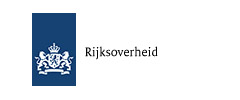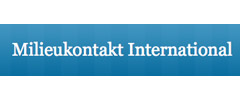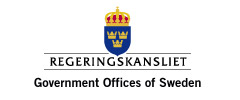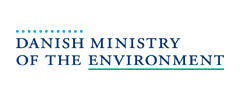Green bridges Munich - Warsaw II
Mayors meeting on ecofarming held in Glonn by Munich
28.09.2010 |
Between 07th and 09th September 2010 a Polish delegation from the community of Dlugosiodlo from the Masovia region visited the Bavarian community of Glonn and the area of Munich under the leadership of Mayor Stanislaw Jastrzebski. The visit was a result of the meeting held last year, where the Glonn mayor, Martin Esterl, and representatives of the region and activists for sustainable rural development visited Poland.
During talks and information exchange both sides realized that their communities are geographically similar (surrounded by 40-50 % of wood, many water quells and rivers, and a small distance to a metropolis e.g. Munich and Warsaw), and as a result there appeared a vision of how the two communities could cooperate and exchange the best ideas and solutions for sustainable development. The precise ideas arose during the tour through the Glonn area.
Ecofarming
Ecological farms made a big impression on the visitors: working methods, conditions, money grants (dodatki), EU law and satisfaction of the farmers were thoroughly discussed. Many visitors were surprised to find out that the milk prices where almost as high as in Poland (EU subventions are received by both countries) and that the German ecological farming is very successful. The farmers also stated that since they have switched to the ecological methods and to the local animal races, illnesses do not appear as often as they did when intensive agricultural methods were used. Also it is not economically justifiable to spend money on pesticides, antibiotics and veterinarian costs. The group visited Sir Schwarzer, who has owned an ecological farm for 20 years. He joked about his veterinarian being suspicious, asking "Did you find another doctor for your animals? You don't call me anymore." laughed Schwarzer. The guests heard the same message from another ecofarmer, Herr Singer. Harmony, mental and physical wellbeing characterizes the farmers - that wasn't hard to overlook.
The private vegetable garden of Irmgard and Louis Mora Mora was the next impressive stop during the ecofarming tour. The couple lead their own business expressing their life attitude and conviction: "It is not normal and logic to spray poison on the food we eat", commented Mrs. Mora Mora on the intensive farming.
The most ideas and excitement in the agriculture field were caused by the Herrmannsdorf. The complex of ecological farms, which is concentrated in the village of Herrmannsdorf, is breeding, cultivating, processing and selling high quality products. The fabulous functioning system, the idea of a life circle (nothing gets wasted, locally based, and environmentally friendly) made the Herrmansdorfer famous and serves as an example of sustainable rural development.
"Our main aim is to activate farmers and producers to work together, create the networks of innovative cooperation, help farmers and producers with marketing their products that are bred in sustainable and ecological environment. There are 1,7 mln farms in Poland and 90% of them are traditional family farms, therefore we still have a huge variety of plants and native breeds of animals, and big potential for quality, local organic products in Poland. To protect this biodiversity and these traditional farms we need to make a change on the global and local level. We have to influence the decision makers and the consumers’ attitude. And we have to learn to cooperate on a local, regional, national and international level", says Elzbieta Priwieziencew from Social Ecological Institute (SIE), a WECF Partner and co-organizer of the visit. The good examples motivated the quests to take actions in their community.
The question of flood protection and biodiversity was one of the most important subject during the visit. Memories of floods from this year as well as from the past have renewed the questions of how to protect people and the nature. The group learned how the community in Glonn solved this problem after the flood in 2002.
Renewable energy
The subject of renewable energy sources has also appeared in the topic of sustainable agriculture. There are many solar panels and photovoltaics on the roofs of agricultural complexes and farms in Glonn's – the strategy is to be free from the fossil fuel energy by the year of 2020 (it corresponds to the European Union directives to win 20% energy from renewable energy sources by 2020).
In Poland targets for the renewable energy were set in the Development Strategy of Renewable Energy Sector; they amount to 7.5 % RES in the primary energy balance by 2010 and 14% by 2020. The target of 7.5% RES-electricity by 2010 set at the national level is actually smaller than the target set by the EU, as it refers to electricity turnover in distribution companies and not to the gross electricity consumption as stated in the directive. The difference is approximately 38 TWh, which means that the national target is lower by 30%.
In Glonn the first step has been made successfully by building a communal wood heating plant. Result: 90% of CO2 emissions was reduced.
Energy efficient renovations of the school are being undertaken to save energy costs as well. Three school directors, who represented Polish community, found the information very important as they plan also similar actions.
To continue the subject the group was taken to the Munich area to learn more about photoviltaics: about structure, facts, data and also the history. For the last 20 years the distribution companies in Germany are obliged to buy electricity from the private households. Unfortunately this law doesn't exist in Poland. “Right now we have to concentrate on solar panels because according to the Polish law selling electricity to the network is not possible in Poland yet,” says mayor Jastrzebski.
Future plans
The meeting was held in city hall with the Polish mayor, community delegates, Glonn mayor Martin Esterl and representatives of the community district council to define the ideas, wishes and future plans according to the cooperation plan between the communities.
The field of the exchange has been clarified as following:
1.Eco-agriculture with biodiversity and local marketing.
2. Renewable energy sources.
3. Students/school exchange.
4. Cultural/art level of cooperation
They continued to brainstorm about possibilities of changes and innovations in Dlugosiodlo planning to take the first steps in the above mentioned fields as discussed during the meetings.
Related News
GoodFood4All
WECF and partners all over Europe start GoodFood4All Campaign
06.11.2018
Promotion of Healthy and Economical Agriculture and Livestock Farming
How to improve with simple means agricultural cultivation methods and local livestock farming and make them more profitable
08.08.2018
Armenia Policy Dialogue on Agenda2030 - Women2030 Program, Yerevan, 18 June 2018
WECF and Armenian partners invited 30 Civil Society Organisations and Government representatives to prepare input for Agenda2030 UN top in July
02.07.2018
Greenpeace EU Director pushes for "Friends of the Bees" behaviour at the European Commission
Discussions to ban Neonicotinoids (insecticides) have been going on for a year at the European Commission, considering the threat they pose to bees and other major pollinators. Yet, the vote on the proposal keeps on getting delayed.
20.03.2018
Successful first action against algae overgrowth in the Blue Lake in Ukraine
Using fish to fight the overgrowth of algae
18.12.2017








































